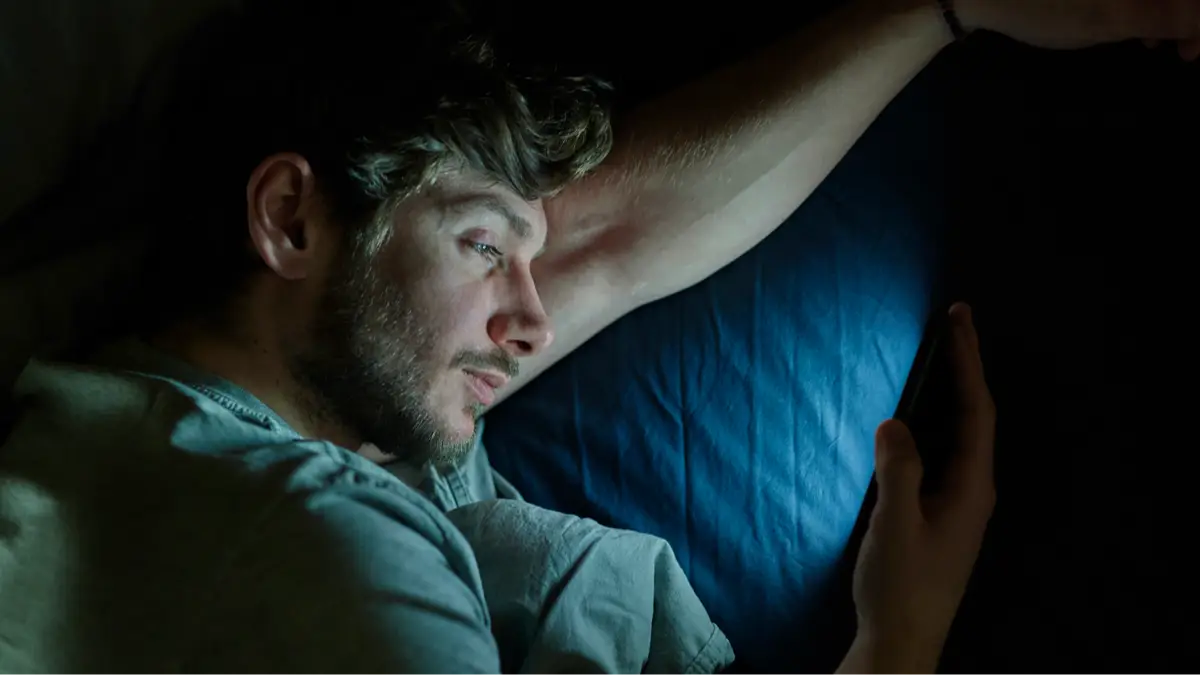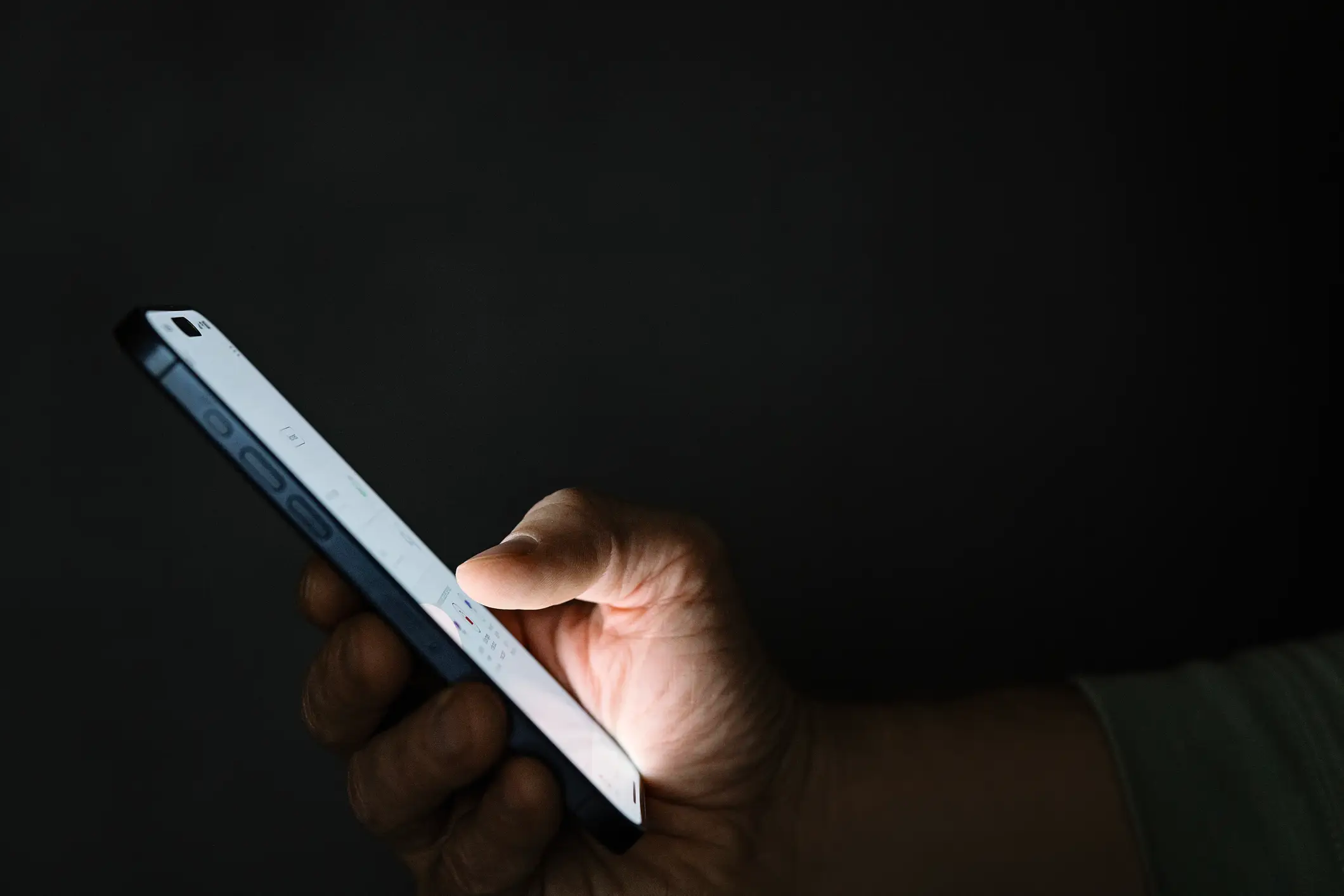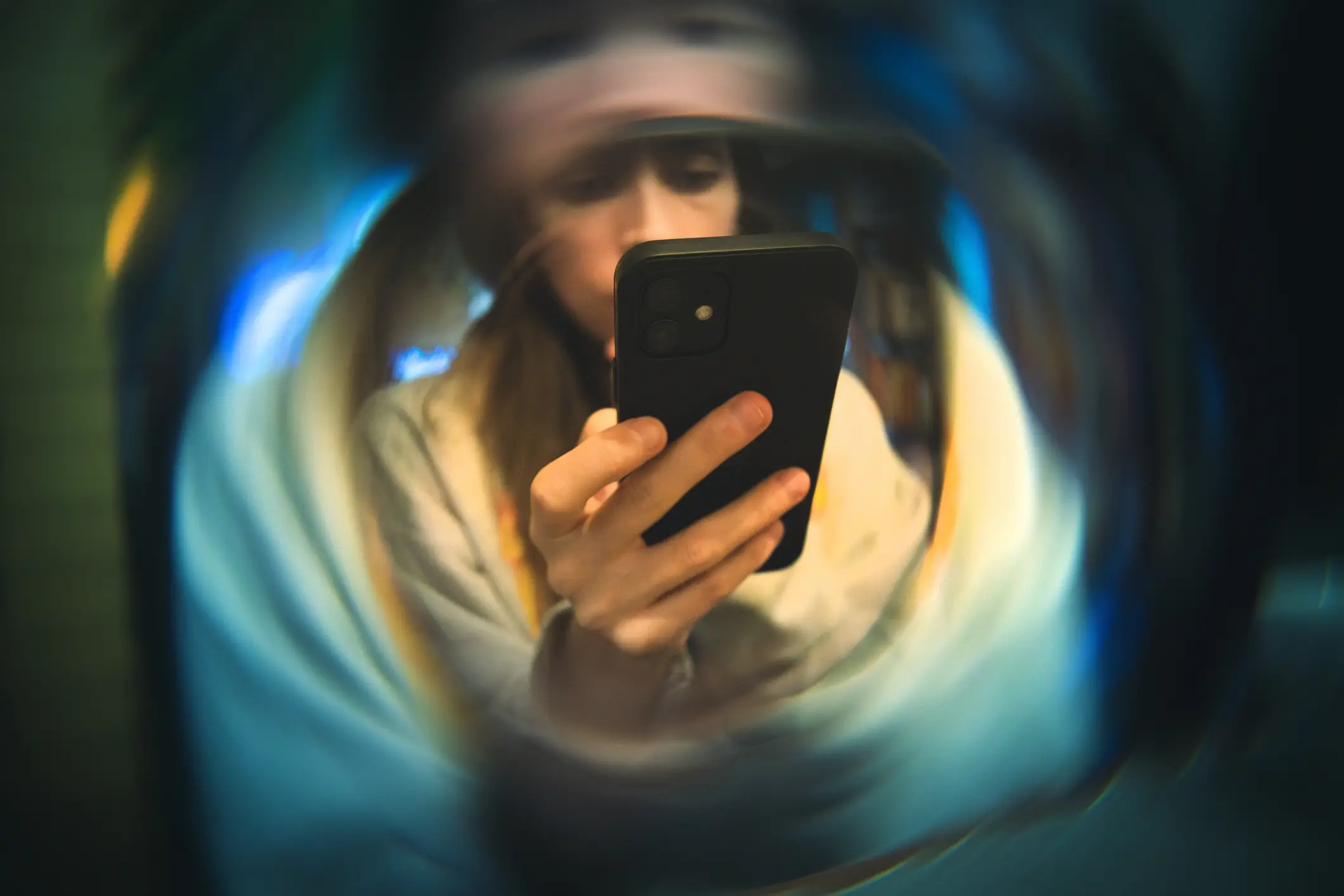
According to some estimates, a person scrolls a staggering 300 feet of content a day.
To put that into perspective, that's almost the same height as the Statue of Liberty. Yep, bad isn't it?
This is often referred to as 'doom scrolling' or 'zombie scrolling', since you're practically in a zombie-like state when mindless trawling through so many videos, posts and pictures.
While similar, The Newport Institute has different definitions for the two tech-related habits.
Advert
"When zombie scrolling, you vacantly stare at your smart phone as you flit from one feed to another," it says. Meanwhile, doom scrolling involves searching for 'distressing information and negative news'.
In regards to how long we spend on our phones a day in terms of time, shocking figures revealed that most people worldwide have just short of seven hours a day of screen time.
As I'm sure you can imagine, spending this much time on our devices can have a huge impact on our health — especially if you're prone to zombie scrolling or doom scrolling in bed.
Studies have shown that doing this can negatively impact your sleep, even if it's just an hour you're looking through you phone for before hitting the hay.
Zombie scrolling also affects your brain, says Dr Don Grant PhD, Newport’s National Advisor of Healthy Device Management.

One symptom is something known as 'brain rot'. The Newport Institute defines this as 'a state of mental fogginess and cognitive decline that results from excessive screen engagement'.
While it isn't a medically recognized condition, they insist that it's very much a 'real phenomenon'.
Dr Grant also noted the bad effect zombie scrolling has one someone's mental health and expressed his concerns about this.
READ MORE:
APPLE EMPLOYEE REVEALS WHY YOU SHOULDN'T CLOSE APPS ON YOUR PHONE
MILLIONS OF IPHONE USERS COULD BE OWED MONEY AMID NEW LAWSUIT
"For young people, the impact of what they’re seeing on social media can be extremely dysregulating, and the longer they do it, the more it’s going to impact them," he said.

"Scrolling does not imply simply watching something — emotions are attached and it is personal."
Dr Grant used the phrase 'compare and despair' to describe the negative impact social media has on young people, for example, seeing people's seemingly picture perfect photos shared on apps like Instagram.
Zombie scrolling also stops people from experiencing real life things as well, Dr Grant pointed out.
Other things to be cautious of when it comes to spending too much time on your devices is eye strain, difficulty focusing, and a sense of emotional disconnection.
Topics: Mental Health, Social Media, Technology, Phones, Health